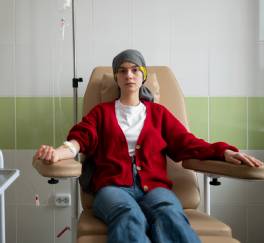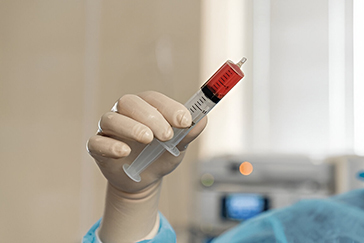 Book Appt.
Book Appt.
 Call Now
Call Now


The immune system is a remarkable defence mechanism that safeguards the body against a multitude of pathogens, from bacteria to viruses. However, in some individuals, this intricate system may falter, resulting in immune deficiency disorders. These conditions, often referred to as primary immunodeficiencies (PIDs), compromise the body's ability to fight infections and can lead to a range of health challenges.
Immune deficiency disorders, or primary immunodeficiencies, are a group of rare genetic disorders that affect the immune system's ability to function properly. Unlike secondary immunodeficiencies, which are acquired later in life, primary immunodeficiencies are typically present from birth. These disorders can manifest in various ways, leading to increased susceptibility to infections and, in severe cases, autoimmune or inflammatory conditions.
Types of Immune Deficiency Disorders
There are over 400 known types of primary immunodeficiency disorders, each with its own unique characteristics. Some common types include:
Causes of Immune Deficiency Disorders
Primary immunodeficiency disorders are primarily caused by genetic mutations that disrupt the normal development or function of the immune system. These mutations can be inherited from one or both parents. In some cases, the specific genetic cause may not be known.
Symptoms of Immune Deficiency Disorders
The symptoms of immune deficiency disorders can vary widely depending on the type and severity of the condition. Common symptoms may include:
Diagnosis and Screening
The diagnosis of immune deficiency disorders typically involves a combination of clinical evaluation, blood tests to assess immune function, and genetic testing to identify specific genetic mutations. Early diagnosis is crucial to initiating appropriate treatment and preventing complications.
Treatment and Management
The management of immune deficiency disorders aims to strengthen the immune system and prevent infections. Treatment options may include:
Prognosis
The prognosis for individuals with immune deficiency disorders varies depending on the type and severity of the condition. With early diagnosis and appropriate treatment, many individuals with primary immunodeficiencies can lead relatively normal lives. However, severe forms of these disorders can be life-threatening without intervention.
SHALBY Sanar International Hospitals provides extensive medical procedures backed up with our state-of-the-art technology and a team of highly qualified & experienced clinical experts.
Our doctors pen down their research findings and experiences from time to time. Their words provide deep insight into the latest techniques, technologies and other advancements in healthcare. It provides expert answers to all kinds of health questions for real-life issues.
VIEW ALL



.jpg)
Since the day of its foundation, SHALBY Sanar International Hospitals is committed to provide comprehensive healthcare services. It regularly organizes awareness programs in its premises and encourages outdoor healthcare activities and camps with an intent to put focus on preventive healthcare.
VIEW ALL